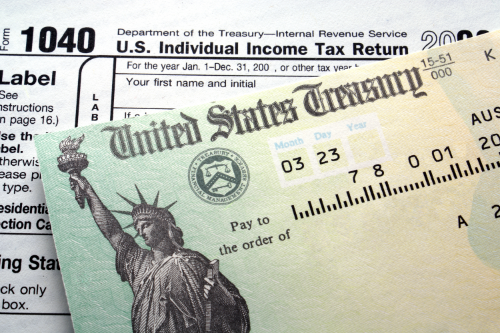Personal Finance
Debt Elimination, Taxes, Personal Credit, Retirement Planning, 401(k), IRA, Pension Fund
Debt Elimination
Debt elimination is an important step for securing a better financial tomorrow. Its important for securing your financial future – if there is no debt elimination, then there is no capital to build upon. With debts mounting, one can’t save or invest for the future. Therefore when you really require money for the future, there is none for you.
Money depreciates in value as inflation continues to rise. Therefore the same amount of money will not buy the same amount of goods and services in the future.
Securing the future of the children – if you have family obligations, whether they are children or your parents, you would want to give them a secure future. This means paying for your children’s education, medical bills etc. In these situations, you would want fastest progress. After there is elimination of debt you can secure a future for your loved ones.
Having a good credit rating – if there is no debt elimination, then you will have an adverse credit rating. This means that it will become difficult for you to apply for more loans and debts. Banks and other lenders will be wary of lending to you. Even if the lenders give you loans, there will be a high collateral value or high interest rates. Thus you will be stuck in a debt trap. Where you will be borrowing just to repay the old debt. This is known as a debt trap, therefore its very essential that debt is eliminated, thus debt elimination gives you leeway to plan for your future.
Debt elimination should be done continuously and with a conscious effort. Therefore don’t take small debts as they add up to big debts. Try to make expenditures out of the available cash in hand, this means that you are not living on credit. Thus one should strive for debt elimination at the earliest.
Taxes
When a taxpayer owes money on their taxes they need to pay the amount owed before the traditional April 15th deadline. If the amount owed on taxes is not paid before the deadline, then federal and state governments can impose a number of late fees and penalties. While there are penalties for failing to a pay taxes on time, there are no penalties assessed to individuals who are due a refund but fail to file their tax returns on time.
Tax season is a stressful time for many taxpayers. With hectic lives and busy schedules it is likely that an individual may not find the time to have their taxes prepared. As previously mentioned, there is the chance of late fees and other additional penalties for individuals who owe taxes; therefore, many individuals who are expected to owe money are more likely to find the time to have their taxes completed on time than those who do not. There are no penalties for taxpayers who are expected to receive a refund to file their taxes late; however, there may be another problem that arises. That problem is what is known as unclaimed tax refunds.
Personal Credit
Maintaining a good credit is important to your financial life. There are people who experience poor credit report due to neglect and improper report reviewing. There are even others who went through the process of repairing their credit and somehow managed to maintain good credit after.
If you do not want to ever need a credit repair, good credit maintenance is advisable. Luckily, simple steps can help one in proper maintenance of a good credit. The Importance of a Good Credit Credit history plays in important role in determining whether you are qualified for a loan or not.
The credit is really worth a thousand words and it says so much about the consumer. Not only can it affect your finance but other aspects of your life as well. Several counselors and services agree upon on thing: maintaining a good credit is important in leading a fit financial life.
Most people do not realize that landlords, employers and companies checks credit scores before making a decision on whether or not they can grant a contract or a job. The scores and credit report can help companies decide whether you pay your bills on time or if you have filed for bankruptcies. By doing so, they can use the information on your credit report as a future marker of your credit worthiness.
Retirement Planning
Why retirement planning is necessary? Obviously, retirement planning isn’t all about numerous hours of stress by chugging down numbers and analyzing mutual funds: it’s about fixing and deciding how you will live the final years of your life.
If one can balance financially and plan fully on a retirement plan, rest assured that your future is secure. But remember that retirement planning isn’t a singular activity. It is something that stretches forth to decades, spanning your 30s, 40s and 50s. In every decade, one must rethink their strategies since you are inching closer and closer to retirement, thus one must forgo risky investments and go to bonds and reliable mutual funds as the years pass by.
Build the Right Retirement Plan
A retirement plan must be suited to your risk tolerance and apparent need for cash when retirement comes. If you prefer a general 401(k) that has a good balance of everything, you may go for equal amounts of low-risk bonds and riskier stocks or you may also opt for an assortment of mutual funds that both have high-risk and low-risk funds.
401(k)
A 401k is a good place to start in planning for your future retirement, no matter how far away you may be from the actual time. A 401k account is a special type of savings account that is funded directly through your paycheck each pay period. How it works is that you and your employer determine the amount that is to be deducted from each paycheck you receive, then the employer determines your pre-tax earnings and deducts your 401k funds from the paycheck prior to taxes.
Once deposited in the special savings account, the funds in the 401k are then invested into many different types of mutual funds, bonds, and stocks. The great thing about a 401k retirement plan is that all of these investments are completely free of taxes until the time comes for you to withdraw your money from the 401k account.
IRA
An Individual Retirement Account (or IRA) is a retirement plan account that provides some tax advantages for retirement savings. There are a number of different types of IRA accounts, some being employer provided plans and others you set up yourself.
Traditional IRA
In a traditional IRA, the money is deposited before being taxed. It accumulates tax free on earnings until being withdrawn at retirement, at which point the money is taxed. Since the money is contributed before taxes, you take a tax deduction for it (some exceptions), then let it grow until retirement. So, when you retire (presumably in a lower tax bracket) the money is taxed.
There are also SEP IRA, Simple IRA, Education IRA, etc.
Pension Fund
In the wake of poor market performance over the past few years, a number of traditional pension plans sponsored by private employers do not have sufficient assets to provide the promised benefits. These plans are underfunded. In general, if your plan is a traditional pension plan, it promises to pay you a specified monthly benefit in retirement.
Your plan may specify a flat dollar amount, such as $300 a month. Or, more commonly, it may specify a benefit formula, which takes into consideration other factors such as your age and your length of service. For example, your plan may provide for a benefit equal to 10% of your average salary, based on your three highest wage earnings years with your employer, for every year of service with your employer.
With a traditional pension plan, your employer is responsible for making all contributions to the plan. Each year, your employer must hire an actuary to calculate, based on interest rate and other assumptions, the amount that must be deposited into the plan so that the plan will be able to provide the promised retirement benefit.
Wealth Management or Wealth Planning. We’re Here to Help.
My advisor completely explains each product in which I had an interest, and suggests others that I was not aware but could benefit. He is patient and works to make the best outcome for me.









